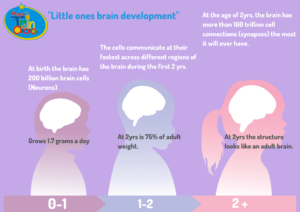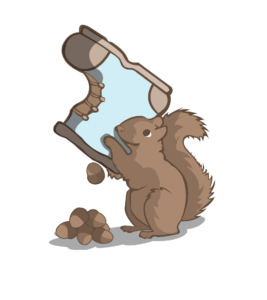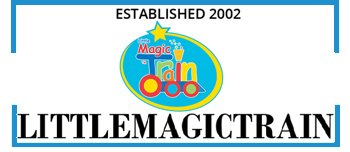We have just uploaded the Speech and Language resource linked to our May session of the month “Amazon adventure”. This is also available in Welsh.
You will also find the “Amazon adventure” Certificate, Learning and Creative activities in the shop.
We have just uploaded the Speech and Language resource linked to our May session of the month “Amazon adventure”. This is also available in Welsh.
You will also find the “Amazon adventure” Certificate, Learning and Creative activities in the shop.
Would you like to try something new in your setting for the month of May?
If the answer is YES, then take your children on an Amazon adventure and you will:
“Amazon adventure” will help improve your children’s:
There are so many opportunities for learning in the adventures and we have done all the hard work so you can have the fun helping your little ones learn. Littlemagictrain sessions cover all areas of the EYFS and Foundation Phase.
Visit www.littlemagictrain.com and go to our “Special offers” and you will find the “Amazon adventure” bundle which includes the “Individual session”, “Speech and Language activities”, “Creative activities”, “Learning activities” and “Certificate”. This bundle comes to a total of £18.75 and you will receive the “Amazon adventure” training videos for FREE (RRP £20.00)
#littlemagictrain #EYresources #EYtraining #speechandlanguage #physicalliteracy #relationshipbuilding #emotionalregulation #emotionaldevelopment #wellbeing #Play #Everydayisalearningday #childminders #nurseries #preschool #preschoolplay #earlyyearsmath
Movement is for ALL children. Parenta Magazine asked me to write about dance and inclusion. I do hope you find part 1 of the article helpful.
Meeting Myelin
Did you know how much of a pivotal role Myelin plays in your child’s development?
What is Myelin?
Myelin is humble-looking insulation that very tightly wraps around the nerve fibres. This process increases signal strength, speed and accuracy. This incredible insulation is the broadband in our brain and every time we do something and practise it, we are upgrading the speed and precision of the broadband in our brain circuitry.
When you hear people talking about ‘muscle memory’ they are actually talking about Myelin and it has even been attributed as the key “to talking, reading learning skills and being human.”
Q: Why is targeted, mistake-focused practise so effective?
A: Because the best way to build a good circuit is to fire it, attend to the mistakes, then fire it again, over and over. Struggle is not an option: it’s a biological requirement.
Coyle, D, (2009); The Talent Code, page 34
If Myelin was part of a City or Town it would be the tarmac on our roads and pavement. That does seem a little boring and dull as to be honest have you ever stood in awe admiring concrete? I know I certainly don’t, but we really should be admiring and nurturing the Myelin in our own circuitry and helping develop it in our little ones.
Did you know?
Myelin initially builds on the sensorimotor white matter and the Heschl gyrus (the structure containing the human primary auditory cortex in the brain) then extends to the language-related areas.
The vital aspect of physical literacy in the Early Years is that it helps with speech and language and this is looked at in the ‘Myelination of language-related areas in the developing brain’ by J. Pujol, et al, 2006.
My light bulb moment with Myelin
When I created Littlemagictrain, in 2004, I was intrigued by the feedback from nurseries and preschools regarding the increased confidence of the children after a few sessions. For the first few years, I initially assumed this was due to the way make-believe, music and movement had been combined in one session to engage the children.
But then I read Daniel Coyle’s book ‘The Talent Code’ about the importance of Myelin in training dancers, athletes and musicians and he concludes that it’s not about practise but “good practise”.
Q: Why are passion and persistence key ingredients of talent?
A: Because wrapping Myelin around a big circuit requires immense energy and time. If you don’t love it, you’ll never work hard enough to be great.
Coyle, D, (2009); The Talent Code, page 34
“Good practise” is vital in early years as everything the children do, and learn, is creating all those amazing neural connections in the brain and Myelin working overtime to wrap around the nerve fibres. Myelin has been described as a fatty sausage that wraps around the nerve fibre. The best way to envisage Myelin is layers and layers of electrical tape that has been used to prevent any leaks.
When a neural pathway is made and fully Myelinated (covered in electrical tape), your brain doesn’t change the pathway or make amends it just rebuilds elsewhere. For example, if you have made a connection going from ‘A to B’ and you need to correct this mistake, your body has to create a totally new neural pathway and start again. Unfortunately, this means the brain has to find a new way of getting from ‘A’ to ‘B’ and to get there it may have to go via ‘W’. A lot of extra work!

‘Little ones brain development’ Littlemagictrain 2021
This simple graphic shows how hard the brain is working in the early years, growing connections and pathways and at the same time wrapping Myelin around all those pathways.
‘Meeting our hero Mr Myelin’
‘Daniel Coyle draws on research in his book ‘The Talent Code’ on the importance Myelin building. He reveals why some teaching methods are more effective and how important it is to train our brains in the right way. Coyle introduces you to Mr Myelin the man behind this research.
Mr Myelin is in fact Professor George Bartzokis (1956-2014), a neuroscientist and Professor of Psychiatry. Bartzokis originated the theory that the degeneration of the brain’s myelin contributed to many developmental and degenerative diseases, such as schizophrenia and Alzheimer’s. This research shows the importance of Myelin in the brain and how it ensures everything runs smoothly.
‘If you don’t use it you lose it!’
This phrase says it all, as the brain will prune away the bad neural pathway and the new pathway going from ‘A’ via ‘W’ to ‘B’ will stay. The brain is continually growing and pruning neural pathways. To help children learn we need to ensure the correct neural pathway is built so they don’t have to relearn, rebuild and prune. I always visualize a gardener attacking a rose, that has grown along a wall in the wrong direction. The gardener has to prune the poor rose which then has to find the energy and make the effort to grow all over again in the right direction.
‘Something to think about’
Q: “Why can’t monkey’s – which have every neuron type and neurotransmitter we have – use language the way we do?”
A: “because we’ve got 20% more myelin. To talk like we are now takes a lot of information -processing speed, and they have no broadband.
Q: “Why can horses walk immediately on being born while humans take a year?”
A: “A horse is born with its brain fully myelinated, online, and ready to go.
Coyle, D, (2009); The Talent Code (p 67-68)

Some Handy Myelin building rules
Daniel Coyle came up with these 3 rules in his book on how to grow Myelin.
RULE 1:
CHUNK IT UP
MODELLING
SLOW IT DOWN
RULE 2:
REPEAT IT
RULE 3:
FEEL IT
Littlemagictrain and Myelin
Reading Daniel Coyle’s book helped me make sense of my own vocational ballet training and perfecting movements to build Myelin and the how and why of teaching. On reflection, I can see that without realizing it, I had been following the rules of Myelin building in the sessions.
It is so important that we help children build the correct pathways. To ensure this process is fun and the children are fully engaged and included I have always used the fun of make-believe, music and movement and this is the foundation and passion of Littlemagictrain.

In a nutshell
Littlemagictrain helps with Myelin building as we develop the story and actions over a number of weeks. The sessions allow you to:
movement skills and vocabulary are developed in small bite sized chunks.
correct modelling from the grown-ups to help with learning
the speed of your actions/development will depend on your little ones needs.
the sessions allow for repetition with the fun of what next?
So many different learning opportunities to be had through fun. For more information on the sessions and how they will benefit your little ones visit www.littlemagictrain.com

References:
Coyle, D., 2010. The Talent Code. Crawley: Arrow Books (ISBN 9780099519850)
Pujol. J, Sorian-Mas. C, Ortiz. H, Sebastian Galles. N, Losilla. J.M. & Deus.J., 2006. Myelination of language-related areas in the developing brain’. March 2006. Neurology 66 (3): 339-43; PubMed.
Entertain and educate your children without any cost using make-believe, music and movement.
These FREE exciting, entertaining and educational sessions will run, and be available, throughout lockdown. Accessible via our homepage on www.littlemagictrain.com
Benefits for the children:
These fun sessions will be made available at 1pm on the allocated days and will continue to be available for you on demand, during lockdown, to access whenever works best for you and the children.
Do join us on the 18th of January and to help you further we are providing you with FREE RESOURCES to use at home, your early years setting or school and available to download now. These FREE RESOURCES include our:
| Item | Theme |
| Special edition littlemagictrain session | Visiting the bears |
| Speech and language activities | Visiting the bears |
| Games (available in Welsh) | Visiting the bears |
| Creative downloads | Visiting the bears |
| Certificates (available in Welsh) | Visiting the bears |
Just go click this www.littlemagictrain.com/product-category/lockdown-activities/ to take you directly to the resources. Pop them in your shopping cart and use the coupon code LMTpart1 and they will be 100% FREE for you to use at home, your early years setting or school.
Our first make-believe, music and movement adventure will be one of our favourites ‘Visiting the Bears’. This fun adventure will be built up over 4 weeks to allow for learning, repetition and the fun of ‘what next?’ We will also post additional learning ideas for you linked to the session on our social media. Do follow us to ensure you don’t miss out.
The schedule of activities available for you on www.littlemagictrain.com
Week 1
| Day | Time | Session |
| 18/01/21 | 13:00hrs | ‘Visiting the bears’ part 1 |
| 20/01/21 | 13:00hrs | Speech & language activities linked to part 1 |
| 22/01/21 | 13:00hrs | Speech & language activities linked to part 1 |
Week 2
| Day | Time | Session |
| 25/01/21 | 13:00hrs | ‘Visiting the bears’ part 2 |
| 27/01/21 | 13:00hrs | Speech & language activities linked to part 2 |
| 29/01/21 | 13:00hrs | Speech & language activities linked to part 2 |
Week 3
| Day | Time | Session |
| 01/02/21 | 13:00hrs | ‘Visiting the bears’ part 3 |
| 03/02/21 | 13:00hrs | Speech & language activities linked to part 3 |
| 05/02/21 | 13:00hrs | Speech & language activities linked to part 3 |
Week 4
| Day | Time | Session |
| 08/02/21 | 13:00hrs | ‘Visiting the bears’ part 4 |
| 10/02/21 | 13:00hrs | Speech & language activities linked to part 4 |
| 11/02/21 | 13:00hrs | Speech & language activities linked to part 4 |
Littlemagictrain was launched in 2004 and from 2012 has worked on creating multi-sensory resources for early years settings. Our aim is to engage, excite and educate children through make-believe, music and movement. To help you achieve this we have done all the hard work preparing the sessions for you.
The carefully planned sessions are an ideal springboard for further learning ranging from dialogic reading to physical literacy using creativity and role-play as the sessions are a bridge between the imaginary and real world. These sessions are fully inclusive and easily adapted for every child’s need.
For more information on littlemagictrain
Contact: Gina Bale
Tel: 01865 321 212
Email: hello@littlemagictrain.com
The Speech Bubble is an independent, paediatric speech & language therapy practice based in the North West. They have been working directly in schools and with local authorities since 2003 to help young people with SLCN (Speech, Language and Communication Needs).
Team members of The Speech Bubble first reached out to littlemagictrain after using littlemagictrain as a speech and language intervention in schools, recognising the benefits and its potential for developing speech, language and communication.
The Speech Bubble use littlemagictrain to develop vocabulary, understanding, grammar and narrative skills. Our favourite sessions include ‘Visiting the Bears’, ‘Picnic on the Moon’ and ‘Under the Sea’.
The Speech Bubble also offer various training opportunities across all areas of Speech and Language. From LEGO therapy to ELKLAN to bespoke courses, team members have a combined experience of nearly 100 years and can offer training on a wide variety of topics.
For more information on The Speech Bubble
Contact: Katie Khan
Tel: 01254 670767
Email: info@thespeechbubble.co.uk
Sign up today for our FREE activities and exciting ideas!

